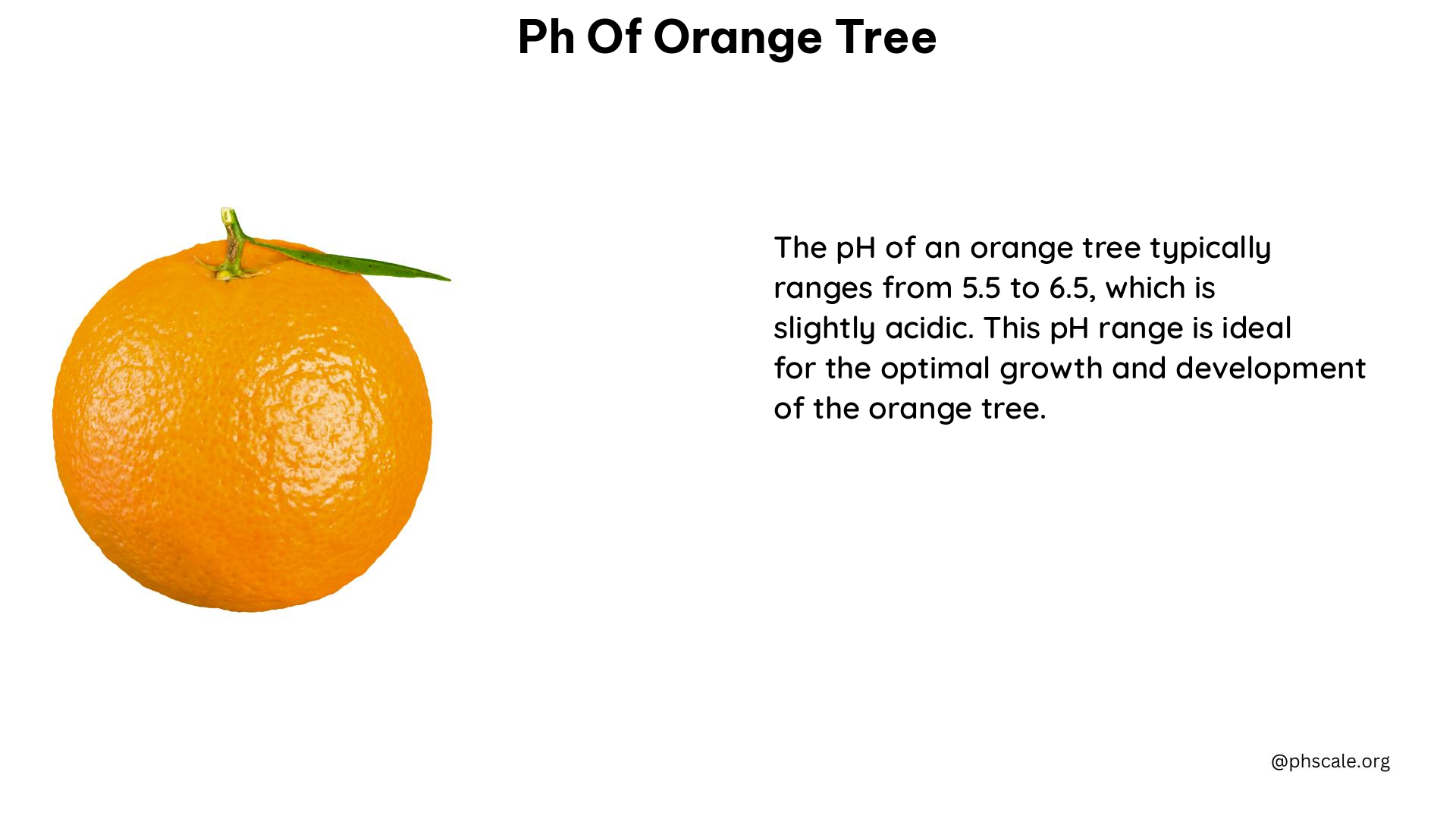The optimal soil pH range for orange trees is between 5.5 and 6.5, allowing for the best nutrient uptake and availability for the tree. Maintaining this pH range is crucial for the health and productivity of your orange trees, as it can impact nutrient availability, root growth, and overall tree performance.
Determining Factors
Soil pH can be influenced by various factors, including the presence of limestone bedrock, irrigation water quality, fertilizers, and seasonal changes. High-pH irrigation water, composts, and certain fertilizers can increase soil pH, while acidifying irrigation water and elemental sulfur products can lower it.
Maintaining the Right Range

Regular soil pH checks are crucial to ensure the optimal range. This can be done annually, typically in late summer or fall, to allow for adjustments before fertilizer applications. Lime and dolomite can be used to raise soil pH, while acidifying irrigation water and elemental sulfur products can lower it. Care must be taken when acidifying irrigation water to avoid over-acidification.
Nutrient Availability
Most micronutrients are more available at lower pH, while macronutrients are more available at higher pH. Excessively low soil pH can lead to toxicities, and high pH can cause iron deficiency. Adjusting soil pH from above 7 to the range of 6 to 6.5 can increase the availability of potassium, phosphorus, calcium, manganese, zinc, and iron, improving citrus growth and yield.
Management Options
Annual soil sampling and water quality testing are essential for managing soil pH and nutrients. Acidification of irrigation water, elemental sulfur application, and the use of acidifying fertilizers can help maintain the optimal pH range. The time required to achieve optimal soil pH can vary from 6 to 24 months, depending on soil buffering capacity, moisture, temperature, and aeration.
Home Remedies
Products like Iron Sulfate or Soil Sulfur can help improve soil pH by making it more acidic, making iron more available to the plant. Citrus food and pH adjusters like pH Adjuster Plus can also help maintain optimal soil pH.
History
Citrus trees have been grown for centuries, with various techniques developed over time to manage soil pH and nutrient availability. Today, growers use a combination of soil testing, fertilizers, and pH management strategies to optimize tree health and yield.
Contaminants and Chemicals
Soil contaminants and chemicals that can affect orange trees include aluminum, which can become toxic at low pH levels, bicarbonates, which can increase soil pH over time, high levels of nitrogen, which can acidify the soil, and lime-induced chlorosis, which can cause yellowing of the tree.
Solutions and Alternatives
Regular soil testing and pH management can help mitigate the effects of contaminants and chemicals. Using acidifying fertilizers, elemental sulfur products, and pH adjusters can help maintain optimal soil pH. Implementing good irrigation practices, such as using rainwater or treated irrigation water, can reduce the impact of high-pH irrigation water.
By understanding the optimal pH range for orange trees and implementing the right management strategies, you can ensure the health and productivity of your citrus orchard for years to come.
References:
- Keeping Soil pH at the Optimal Level – Citrus Industry Magazine. (2022, May 18). Retrieved from https://citrusindustry.net/2022/05/18/keeping-soil-ph-at-the-optimal-level/
- SL453/SS666: Citrus Soil pH Management – University of Florida. (2019, December 10). Retrieved from https://edis.ifas.ufl.edu/publication/SS666
- How to manage soil for citrus – NSW Department of Primary Industries. (2004, December 17). Retrieved from https://www.dpi.nsw.gov.au/agriculture/horticulture/citrus/content/crop-management/orchard-management-factsheets/soil
- pH Adjustment for Citrus – Alden Lane Nursery. (2024, February 13). Retrieved from https://www.aldenlane.com/yellow-leaves
